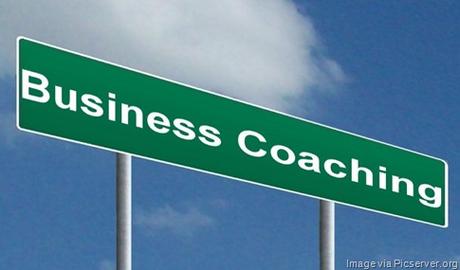 We all know some peers in business who could use some coaching to unleash their potential and optimize performance, but would you know how to do the job if they asked you for help? Most people find it easier and quicker to just do the work themselves, than to guide someone else through the mindset and process needed. The result is frustration and dissatisfaction all around.
We all know some peers in business who could use some coaching to unleash their potential and optimize performance, but would you know how to do the job if they asked you for help? Most people find it easier and quicker to just do the work themselves, than to guide someone else through the mindset and process needed. The result is frustration and dissatisfaction all around.
In reality, even the best performers and leaders need some coaching from time to time, and everyone has the potential to be a coach, so it behooves all of us to learn how to do it right. In an effort to help myself, I read a new book on this topic, “The Master Coach,” by Gregg Thompson. As an expert on this subject, he has provided coach training for many Fortune 100 companies.
His approach, which I espouse, is first that every company needs to make coaching an integral part of their company culture at all levels, rather than rely on occasional outside consultants to come in and fix problems. The reality is that every professional in every organization at every level needs to understand what coaching means, and how to live and build a coaching culture:
-
Nurture the spirit of sharing in every team member. People who make great coaches, as well as the best performers, are ones who are willing to liberally share their time, attention, and energy with others on the team. Self-centered members need coaching.
-
Partner with people who see the best in everyone. Coaches need the ability to look past the shortcomings of others to focus on their positive qualities, even if deeply hidden. Team members who are most often negative or critical of others drag everyone down.
-
Select team members who have high self-esteem. The best team members feel good enough about themselves to not use the coaching relationship to feed their ego. Healthy self-esteem rests on the principles of integrity, authenticity, and self-reliance.
-
Only add team members that are emotionally mature. People who are the most productive, and also make good coaches, are keenly self-aware, understand how to manage their emotions, and are able to create sustainable relationships with others.
-
Look for people who are interpersonally courageous. These team members will boldly confront peers and those they coach, and seek truth in all conversations. People who are hesitant to engage or disagree, need coaching to bring out their potential.
-
Coaches need uncommon empathy and compassion. They need to understand the struggle and pain that often accompanies personal learning and change, most notably from personal experience. Those who refuse to change rarely relate well with others.
-
Life-long learners make great coaches. These have voracious appetites for new knowledge and self-development, and can inspire other team members to look outside the box for new levels of performance and satisfaction. Inspiration is the best teacher.
-
Team members need flexibility and resilience. In the rapidly changing world of business today, everyone needs to be strong enough to bend. Both coaches and your business need to weather the setbacks and conflicts inherent to progress and success.
-
Don’t allow judgmental voices to stymie progress. Good coaches and business leaders have an accepting nature, and overcome their human tendency to be judgmental. They speak from the heart, but rely on data and results in making decisions and strategy.
-
Favor people with a perpetually optimistic bias. Coaches can only help if they have the power to make people see a tomorrow that is better than today. Businesses can only succeed if they can make customers see a win-win situation by working together.
Once coaching is a part of your company culture, it’s not so hard to accept coaching from your peers, or for managers and executives to ask for coaching from people at other levels in the organization.
Only then will people see that coaching ability or being coached is not about credentials, job titles, or what you do, but is more about who you are. Are you the person today that you would want as a coach?
Marty Zwilling

